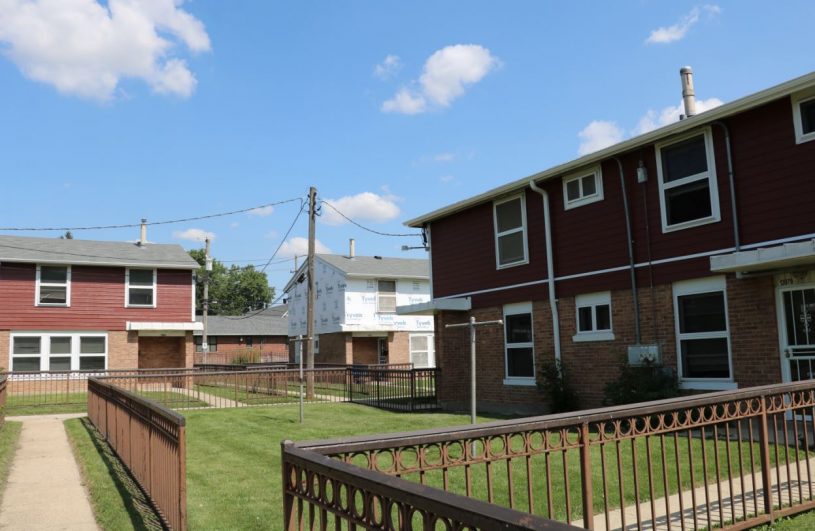
Housing Authority of Cook County one of three Public Housing Authorities nationwide to participate in first-of-its-kind study
(Cook County, IL) – Today, a new report was released by the U.S. Department of Housing and Urban Development (HUD) and the Policy and Economic Research Council (PERC). The report outlined the findings of a study examining how reporting rent payments of low-income, HUD-assisted households to nationwide consumer reporting agencies would impact the credit ratings of families. The results relayed a significant boost in credit scores for low-income families and found that many of the participating households would cease being “credit invisible.” The Housing Authority of Cook County (HACC) was among the three Public Housing Authorities to participate in the research.
“More and more landlords throughout suburban Cook County are using credit score checks to determine whether or not to accept a tenant’s application, especially in areas of opportunity,” said Richard Monocchio, HACC Executive Director. “For our low-income tenants, many of whom have low or non-existent scores due to their circumstances, this means an automatic denial. HACC is proud to have participated in this groundbreaking study and is excited to explore a path forward given the promising findings.”
The study analyzed credit scores (from Experian and TransUnion) of more than 9,000 HUD-assisted households in Cook County, Illinois; Louisville, Kentucky; and Seattle using credit risk models from FICO and VantageScore. The study found that reporting rental payment data resulted in a significant increase in the number of HUD-assisted tenants with credit scores above 620 between 51 and 65 percent. In addition, the inclusion of rental payment data nearly eliminated credit invisibility among HUD-assisted tenants. In one risk model, the rate of ‘unscoreable’ tenants fell from 49-to-seven percent; in another risk model, the share of tenants with little or no credit history fell from 11-to-zero percent.
“I applaud the Housing Authority of Cook County for volunteering to participate in this groundbreaking study,” said Cook County Board President Toni Preckwinkle. “For many of our low-income families in Cook County, rental payments represent the largest monthly bill in the household budget. Exploring ways to incorporate those payments in credit reporting has the potential to provide access to a system that has left too many behind.”
While this study shows rent payment performance can improve both credit visibility and the fraction of tenants with credit scores above 620, it also shows that many public housing tenants continue to have subprime credit scores that can limit their housing choices and their ability to obtain insurance. Other HUD research finds that low credit scores substantially limit tenant choice on where they search for private rental housing and that tenants are motivated to improve their credit, receive financial education, and take advantage of available credit counseling.
“Credit invisibility affects an estimated 54 million persons,” said report co-author and PERC President Dr. Michael Turner. “Through no fault of their own, families are trapped in a credit Catch 22—in order to qualify for credit, you must already have credit. Without a credit report and score, these families are forced to turn to high-cost lenders. This study shows a path to affordable mainstream credit for many HUD-assisted tenants and renters of all types.”
###
Full report: https://www.huduser.gov/portal/publications/Potential-Impacts-of-Credit-Reporting.html
For more information about the Housing Authority of Cook County, please visit us at www.thehacc.org;www.facebook.com/theHACC or www.twitter.com/theHACCtweets.








